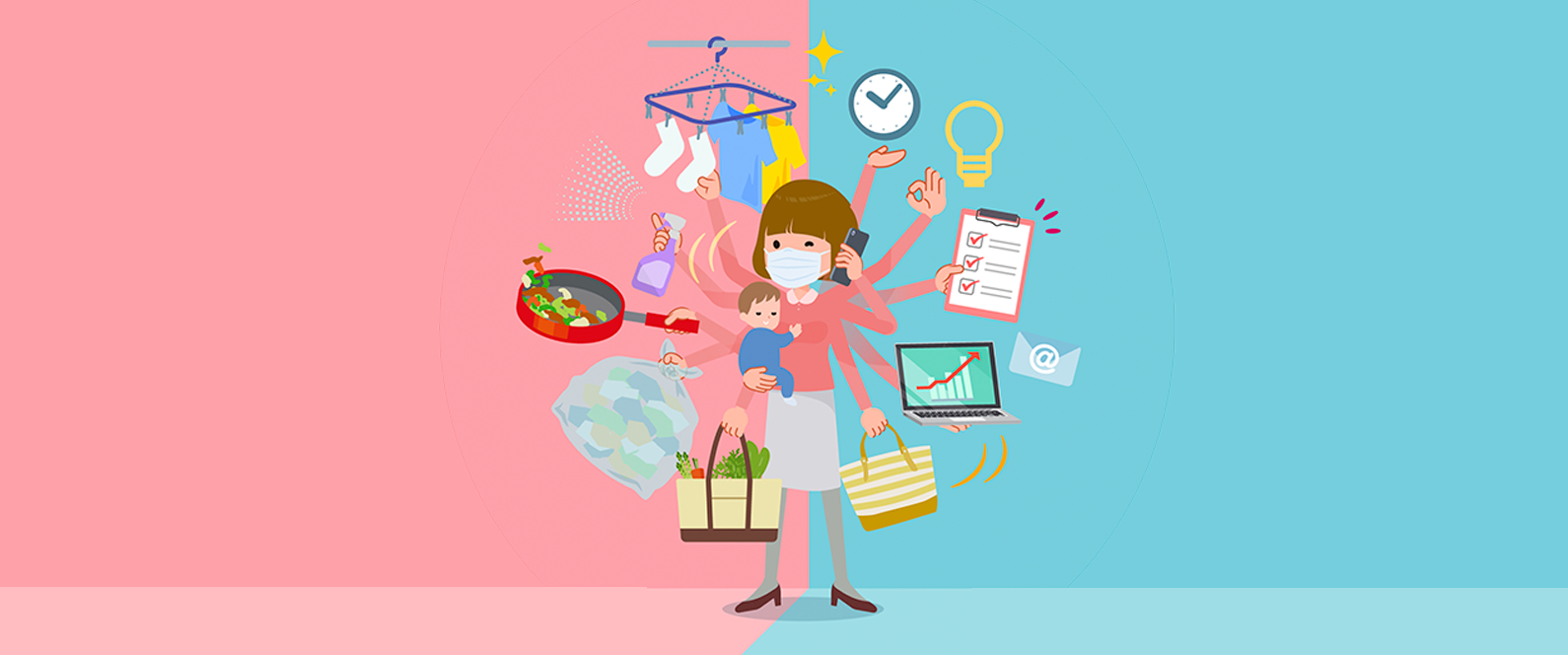Challenges for Women
 During COVID-19 a disproportionate share of childcare and domestic chores has fallen on women
During COVID-19 a disproportionate share of childcare and domestic chores has fallen on women
Physical distancing measures adopted to slow the spread of COVID-19 have been burdensome for many families worldwide. Working from home combined with school closures have affected housework and childcare responsibilities for families, especially if both partners are employed. The global shift to remote working during COVID-19 could have resulted in childcare and domestic chores being divided more equally between couples. However, numerous studies of working parents during this period show that a disproportionate share of the burden has fallen on women (BBC). Housework has particularly fallen on women, while childcare seems to have been shared more equally. The challenges COVID-19 has posed for women cannot be overlooked.

More men (94%) between the ages of 25–54 are claimed to be in the labor workforce as compared to women of the same age group (63%). However, women spend 3 times as many hours as men in unpaid care and domestic work, which is not counted as labor. As women take on greater care demands at home, their jobs could be at stake, further compounded by job cuts and lay-offs. These untoward developments risk rolling back the already fragile gains made in female labor force participation, limiting the ability of women to support themselves and their families, especially for female-headed households.
(United Nations Policy Brief: The Impact of COVID-19 on Women)
 This may cause women to experience more stress and anxiety. The results of stress are different for each individual. These may manifest as sleep problems, headaches, tiredness, loss of concentration, irritability, sadness, lower levels of motivation, and depression. This emotional toll can also impact the workplace by leading to feelings of anger towards others, lack of motivation to stay on task, missing deadlines and meetings, and overall feelings of burnout.Everything we do during and after the COVID-19 crisis must aim to build more equal, inclusive, and sustainable economies and societies. Now more than ever, organizations need to practice empathy towards employees and look at flexible work arrangements and mental health benefits. At home, housework and childcare responsibilities should be addressed jointly and equitably.
This may cause women to experience more stress and anxiety. The results of stress are different for each individual. These may manifest as sleep problems, headaches, tiredness, loss of concentration, irritability, sadness, lower levels of motivation, and depression. This emotional toll can also impact the workplace by leading to feelings of anger towards others, lack of motivation to stay on task, missing deadlines and meetings, and overall feelings of burnout.Everything we do during and after the COVID-19 crisis must aim to build more equal, inclusive, and sustainable economies and societies. Now more than ever, organizations need to practice empathy towards employees and look at flexible work arrangements and mental health benefits. At home, housework and childcare responsibilities should be addressed jointly and equitably.
Source: UN Women | Forbes | BBC
Contributors: Ms. Raji Anand, Dr. Sohaila Cheema and Dr. Sathyanarayanan Doraiswamy
Editing: Mr. John Hayward